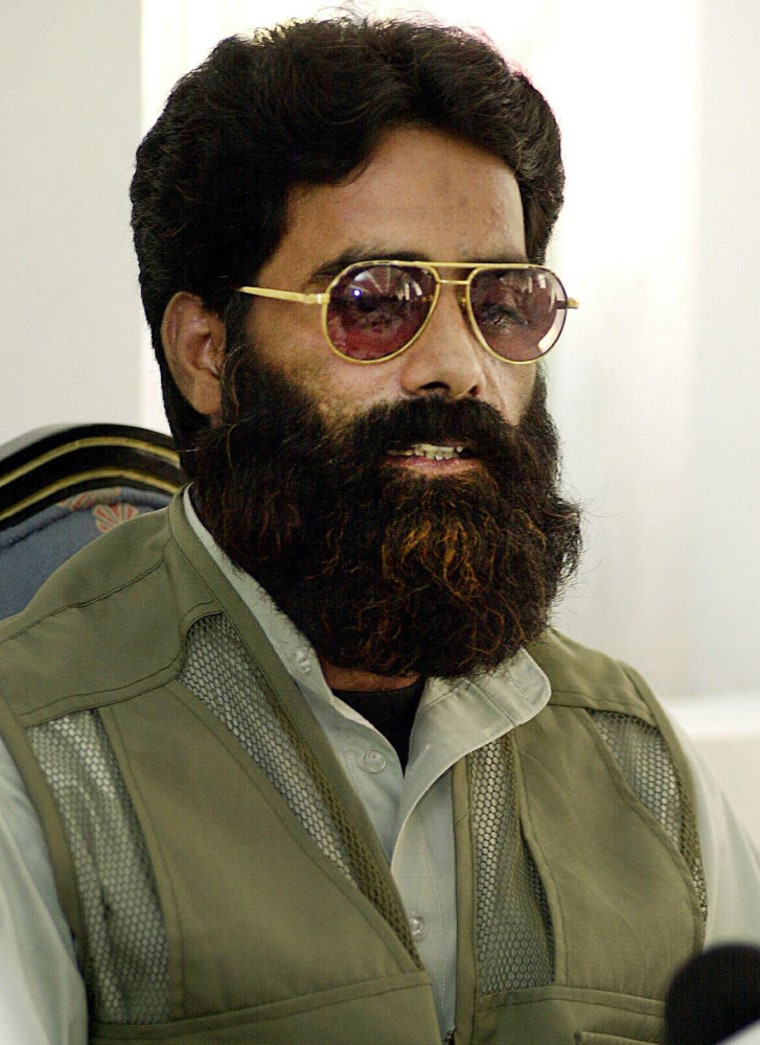A Pakistani former commando who has been linked to multiple terror plots — including a series of planned “Mumbai style” attacks in European cities last summer — has emerged as a possible successor to Osama bin Laden as leader of al-Qaida, according to U.S. officials.
Although Ilyas Kashmiri is barely known to the American public, U.S. law enforcement and intelligence agencies have increasingly focused on him in recent years. The CIA has targeted him in drone attacks in northwest Pakistan and federal prosecutors have indicted him in a major terrorism case involving a Chicago businessman who goes on trial next week.
An elusive figure who often wears heavily tinted aviator glasses, Kashmiri remains at large and active in plotting new attacks against the West, U.S. officials say. It was Kashmiri who, according to U.S. officials, was the key figure behind a suspected plot for multiple attacks in European cities, patterned after the 2008 Mumbai terror strike, which led to a widely publicized State Department travel advisory in October.
While Ayman al-Zawahri remains the “presumed” successor to bin Laden, the longtime al-Qaida deputy is deeply unpopular in some circles and his elevation is by no means guaranteed, a senior U.S. official told reporters this weekend. If al-Zawahri doesn’t make it, Kashmiri may emerge as the dark horse in the ensuing power struggle, the official told NBC on Monday.
“His star has been on the rise for the last several years,” said the official. “He would have to be on the al-Qaida short list.”
Kashmiri was at one point a member of the Pakistani military, serving as a commando in a Special Services Group that was once tasked with training Afghan mujahedeen to fight the Soviets.
He was later reassigned to train Kashmiri fighters against the Indians, but broke from the Pakistani army and joined a terrorist group — called Harakat-ul Jihad-i-Islami, or HUJI (“Movement of Islamic Holy War”) — that has been closely aligned with al-Qaida.
So far, U.S. officials have remained tight-lipped on whether they have found evidence in bin Laden’s compound that shows direct contacts between the now deceased al-Qaida leader and Kashmiri. But hints of such links — and of Kashmiri’s interest in mass casualty terror plots — are contained in U.S. court documents.
One of those documents was filed in the U.S. government’s case against Raja Laharib Khan, a Chicago cab driver from Pakistan, who was charged last year with providing material support to al-Qaida.
An FBI affidavit unsealed as part of the court record in the case alleges that Kahn claimed to have known Kashmiri for 15 years and made frequent visits to Pakistan to meet with him from 2008 to 2010. In a March 17, 2010, conversation with an undercover agent in Chicago that was secretly recorded by the FBI, Khan described a 2008 meeting with Kashmiri in the Pakistani city of Miran Shah in which the two men allegedly discussed bin Laden.
Kashmiri told him that bin Laden was “alive” and “healthy” and still very much in charge of the terror organization, Khan told the undercover agent. “(He is) commanding, he’s giving orders.”
“Does he give orders to Kashmiri?” the undercover agent asked, according to the transcript.
“Just, yeah, to Kashmiri, then Kashmiri give the order to mujahedeen … al-Qaida and Taliban.”
'Blow up buildings'
Later in the conversation, Khan said of Kashmiri, “He’s the main key, after Osama bin Laden,” according to the document. He also allegedly told the undercover agent that Kashmiri planned to use money that Khan was sending him to purchase weapons and train mujahedeen recruits for operations “in Kashmir, Palestine, Bosnia, and Georgia, Russia.”
He also wanted to train operatives to “blow up buildings” and bridges in the United States, but needed American citizens to come for training to Pakistan, Khan allegedly told the undercover agent; otherwise it was “very hard” to get non-U.S. citizens into the country. (Khan has pleaded not guilty to the charges. His lawyer, Thomas Durkin, said there “is an awful lot of things in the Khan case that don’t make any sense, including the government’s contention that Kashmiri is part of al-Qaida.”)
Kashmiri has been separately indicted in an even bigger terrorism case in Chicago against a local businessman, Tahawwur Hussain Rani, who is charged with providing cover for a Pakistani-born American terrorist, David Coleman Headley, who has confessed to conducting surveillance for the Mumbai terror attacks and plotting with Kashmiri to blow up a Danish newspaper in retaliation for its publication of cartoons of the prophet Muhammad.
According to the indictment, Kashmiri has based his terror operations in western Pakistan and starting in 2007 was “in regular contact with al-Qaida.” In February 2009, the indictment charges, Headley met with Kashmiri and another co-defendant in the Waziristan region of Pakistan and handed him surveillance videotapes he had taken of the Copenhagen offices of Jyllands-Posten, the Danish newspaper that had run the cartoons, in order to help plan the terrorist operation.
“During the meeting, Kashmiri indicated that he had already reviewed the Copenhagen videotapes … and suggested that they consider using a truck bomb in the operation,” the indictment states. “Kashmiri also indicated he could provide manpower for the operation.”
Headley was at Chicago’s O’Hare airport, preparing to hop a flight to Philadelphia and then to Pakistan, where he planned to meet Kashmiri again when he was arrested by FBI agents on Oct. 3, 2009. He subsequently pleaded guilty and is expected to be the government’s star witness against Rani, whose trial is due to start next week.
Shortly before Headley’s arrest, Kashmiri was reported to have been killed by a CIA drone strike in Pakistan. But weeks later, he surfaced briefly, giving an interview to the Asia Times in which he told a reporter that the 2008 Mumbai attacks were “nothing compared to what has already been planned for the future.”
